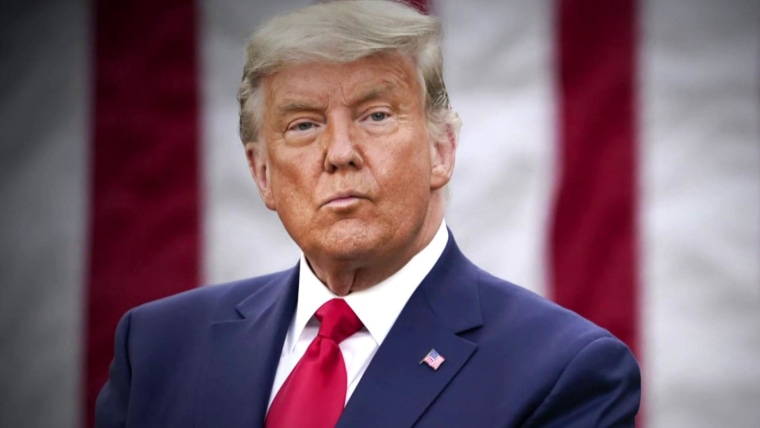[ad_1]
It happens every four years and officially names the next president and vice president — but thanks to President Donald Trump’s efforts to overturn the election results, this year’s Electoral College vote Monday is getting extra scrutiny and taking on even more significance.
All 50 states have already certified their election results ensuring that Joe Biden will be the 46th president, but the Electoral College vote makes the result official.
Trump and some Republican had sought to have electors removed in four crucial battleground states, but the Supreme Court rejected that attempt on Friday night. After the court victory, Biden spokesman Mike Gwin said, “President-elect Biden’s clear and commanding victory will be ratified by the Electoral College on Monday, and he will be sworn in on January 20th.”
Here’s a look at what the vote means, how and where it takes place and what happens next.
What is the Electoral College?
The Electoral College is not a place — it’s a process.
The “college” part of the term is derived from the Latin word “collegium” — a “society of colleagues.” In this case, it’s a society of electors. Under the Constitution, the electors are the people who actually cast votes for president.
The electors are chosen by the political parties of each state ahead of the November general election. The party whose candidate gets the most votes for president in the state gets to have its electors vote for that candidate. (Most states have a winner-take-all system, with Maine and Nebraska being the exceptions.)
How many electors are there?
The “college” consists of 538 electors, and 270 votes are needed for a candidate to win the presidency. The number of electors in a state is equal to the number of members in the state’s congressional delegation. The District of Columbia has three electors.
What’s happening Monday?
After a state’s vote totals are certified, its governor prepares a Certificate of Ascertainment with the names of the winning electors and the number of votes.
Under federal law, the electors gather in their separate states to “give their votes on the first Monday after the second Wednesday in December.” This year, that’s Dec. 14.
Most of the voting will take place in state Capitol buildings. In many states, electors meet in the office of the governor or the secretary of state.
The first states set to vote Monday are Indiana, Tennessee and Vermont, which will take place at 10 a.m. ET. Battleground states that have been hotly contested with legal challenges by Trump vote a little later — Arizona, Georgia and Pennsylvania’s electors are slated to vote at noon, while Wisconsin’s are scheduled to vote at 1 p.m. and Michigan’s at 2 p.m.
Once the votes are cast and Biden passes the 270 mark, he will officially be president-elect and Sen. Kamala Harris the vice president-elect. They will be sworn into office Jan. 20.
What role do Congress and Pence have?
After the Electoral Colleges votes, the states send the votes on to Washington, where they’ll be counted in a joint session of Congress at 1 p.m. ET Jan. 6. The president of the Senate — in this case Vice President Mike Pence — will then formally announce the winners.
(Biden got to announce his own re-election as vice president in 2013, and Trump and Pence’s election in 2017.)
What’s Trump said about the Electoral College?
While the president maintains the election was rigged and that he won a second term, he said in late November that he would clear out of the White House in January if he lost the Electoral College vote.
“Certainly I will,” he said.
But, Trump added, if the Electoral College does vote for Biden, “they made a mistake.”
Can electors change their votes?
Some can, but it rarely happens. Since 1948, there have only been 16 “faithless electors” — although there were seven in 2016. Five switched their votes from Hillary Clinton to other people and two changed their votes from Trump to others.
Thirty-two states and the District of Columbia have laws requiring the electors to vote for the candidate they’ve pledged to vote for and, of those, 15 have penalties for electors who don’t. The Supreme Court earlier this year upheld states’ rights to penalize faithless electors.
Can Congress block the Jan. 6 count?
Technically yes, but realistically no.
Under an 1887 law, a congressman and a senator together can submit written objections to a state’s vote count. Rep. Mo Brooks, R-Ala., has already announced his intention to do so Monday, though no senator has yet said they would join him.
If Brooks is successful in finding a partner, the count would stop and the Senate and the House would separately debate the objection on the disputed state’s vote for up to two hours. Then the House and the Senate would vote on whether to sustain the objections.
“Both houses must vote separately to agree to the objection. Otherwise, the objection fails,” the Congressional Research Service noted.
With the House under Democratic control and Republicans having only a slim majority in the Senate, the odds of that happening are zero.
Objections have only been made twice since 1887, once in 1969 over a faithless elector and once in 2005 over voting irregularities in Ohio. Neither attempt was successful.
[ad_2]
Source link

